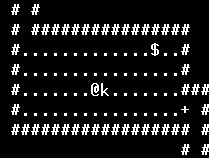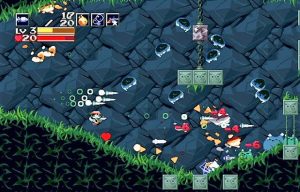Roguelike
A Roguelike can generally be described as a computer game that is free, that is played in turns and that has a strong focus on intricate play and replay ability. It is a representation of the abstract world that uses ASCII-based visualization as opposed to 3D graphics. Of course, as with any genre, there are deviations from the norm. Roguelikes allow the player an undefined time in which they can make a move, making the game more comparable to chess than reflex-based games such as first-person shooters. Since the graphics are limited, the player's imagination must come into play to win the games, which is why the game is more like reading a book than watching a movie.
What is the Roguelike?
These are exploration games aimed at the player using chips and dice, but which have been adapted to the computer. It is played in turns, but this can also vary and be quite the opposite.
History of Roguelike
The creation of Roguelike games comes from amateur programmers and computer hackers, who tried to create games for the nascent field of computing in the early 1980s, mainly influenced by the 1975 text adventure game Colossal Cave Adventure, as it was popularly called, and from the high fantasy scenarios of the board game Dungeons & Dragons.
Some elements of the Roguelike genre were present in the dungeon games written for the PLATO system. This includes pedit5 (1975), which is believed to be the first dungeon tracking game, and which featured random monster encounters, although it only used a single fixed dungeon level.
The pedit5 inspired similar dungeon trackers based on PLATO such as Orthanc (1978), Moria (1978) and avatar (1979). It is unclear whether these PLATO games inspired the Roguelike genre as there is no evidence that early Roguelike creators had access to these games.
The Roguelike core games were developed independently of each other, many of the developers did not learn about their respective projects until several years after the genre took off.
Roguelike characteristics
The main features of this type of game are as follows:
- They are usually single-player
- They usually have a system of turns or micro turns that last until the player does not perform any action or when the game does not react.
- They have an emphasis on random content such as randomly generated dungeons with enemies and objects.
- The gameplay is the main aspect, before the aesthetics or accessibility to the player.
- When the player dies, he must start from the beginning.
- Its difficulty is very high, which stimulates the learning of the details of the game to advance.
- It includes mechanics that reward the perseverance of the player and his knowledge.
- The premise of the game is simple and has little narrative. Usually the main objective of the game is to get to the last level and get back.
- It has permadeath; that is, once you die it’s all over and the character won’t come back anymore.
- Normally the game system is by turns, but there are also examples like the famous game known as The Binding of Isaac where the opposite happens.
Origin of the name
The Roguelike genre takes its name from Rogue, which was a role-playing video game based on Dungeons & Dragons role-playing games and included concepts such as statistics and experience points.
Outstanding games of the Roguelike genre
Among the most outstanding games of this branch we find the following:
- NetHack Web: developed since 1987 and is one of the most famous. Its setting is fantastic medieval and has a mode of viewing by tiles, plus external viewers such as “Falcon’s Eye” to see it isometric.
- Tales of Maj’Eyal: Age of Ascendancy Web: considered by many to be the best. It was the winner of the Roguelike of the Year award in 2010, 2011 and 2012. It’s also fantastic medieval and has the ability to unlock races and classes. It’s not all random but its background is pretty good. It has a turn-based combat system, with passive and active skills and cooling down.
- Dungeon Crawl Stone Soup Web: It has a graphic mode and ASCII It allows a pretty good customization and while looking for the exit to the next floor we can find the ghost of some of your previous characters which makes each dungeon more difficult than the previous one. It also has an online game mode, but it’s still a repetition of the game and the possibility of meeting the ghosts of other players.
- Dungeons of Dredmor Web: This is the most accessible game to the public, it’s simple and very addictive.
- Angband Web EOL: is a freeware and open dungeon exploration game. It is based on the work of R.R. Tolkien and refers to Angband, the fortress of Morgoth. The game must explore a deep dungeon to kill enemies and try to equip you with the best weapons and armor you can find. The objective of the game is to defeat Morgoth.
How to cite this article?
Briceño V., Gabriela. (2019). Roguelike. Recovered on 3 January, 2025, de Euston96: https://www.euston96.com/en/roguelike-en/










